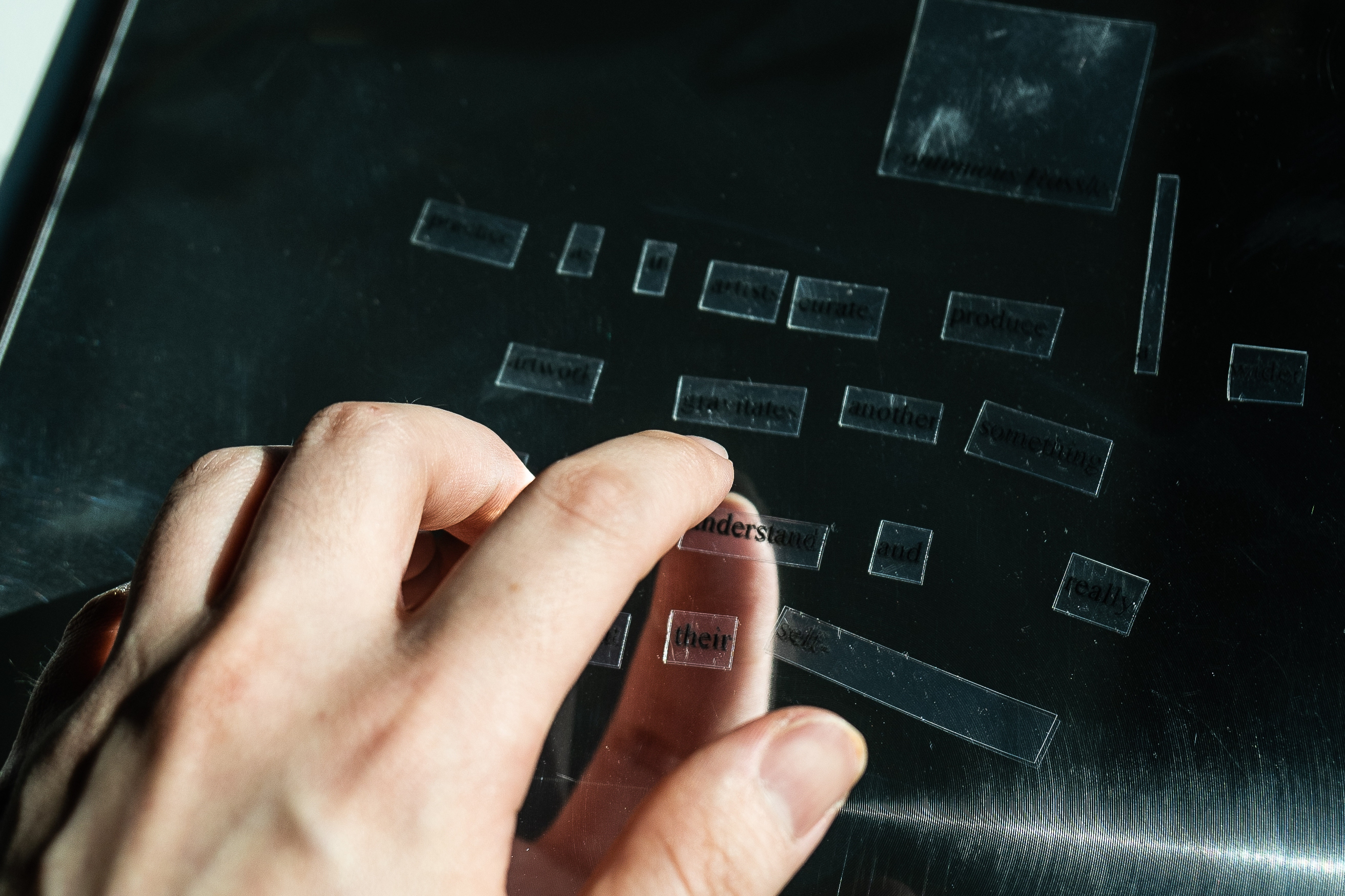In academia, English is considered the 'common' and 'universal' language, which all research outcomes should be translated into to meet global standards and be consumed by an international audience. This is true to a large extent, hence making massive amounts of knowledge flow into the English language and slowly trickle back down. In contrast, when English-speaking researchers study and cite sources from cultures of other linguistic contexts, it is not as often that we see them choosing to translate their texts into the languages that they took from. Our art world is not an exception to this dynamic. But is this fair? Is this enough?
At Translation Cases, we believe translation is the bridge of thoughts that helps bodies of knowledge not only enter the sphere of global consumption but also be re-included into cultural and linguistic contexts from which they were initially extracted. By discussing the politics involved with the directions of translation (English to other languages vs. other languages to English) and highlighting the subsequent significance of multidirectional translation, we aim to understand the ethics of translation. What does this idea of translation mean to artists and art researchers? What are the cases of 'good' and 'ethical' translation when writing about art? Why should we translate anything at all when our art can speak for us universally? Pursuing these questions, we will seek to decentralise and decolonise systems of knowledge production that rely heavily on English as a common language, which often hinders the fair distribution of intellectual and cultural resources.
What to expect
You can join the group at any point in the year.
The group will run a speaker series recurring every 1-2 months that invites translators, artists, and art researchers committed to multilingual thinking and practices. Each session will be one hour long, consisting of a 30-minute presentation by the speaker and a Q&A session leading to a general discussion across the floor.
We will also organise reading group meetings and workshops every 1-2 months to help participants learn the practicalities of translation. An example of books for the reading group is Documents of Contemporary Art: Translation (ed. Sophie J. Williamson, 2019), published by the Whitechapel Gallery. The reading group meetings will also be one hour long but focus more on the members' discussion.
All meetings will be held online, but the group will also consider having occasional in-person activities at CSM.
Most of the events (especially the speaker series) will also be accessible to the external audience via Eventbrite.
Our plans
As the group gains members, we hope to produce actual works of translation and publish them via relevant sources.
You can expect to hear from the group leaders via email 2-3 times every month. These emails will notify you of upcoming events. We will also communicate through the Instagram account (@translation.cases).
What we expect from you
We expect our members to participate by RSVPing for the activities, showing up, requesting speakers, proposing the next activities, and, most importantly, sharing their thoughts, experiences, and questions during our discussions.
Get in touch if interested
Contact Hyunjoo Cho (h.cho0320211@arts.ac.uk) directly or join via the Google form link provided in the group's Instagram profile (@translation.cases).
Group leaders
The Translation Cases group is lead by Hyunjoo Cho, an interdisciplinary visual artist and PhD student at CSM. Her current research attempts to rediscover the role of contemporary artist publishing as an alternative cultural strategy for representing dematerialised art practices. She comes from synthesised backgrounds in Fine Arts (MA, Global Art Practice, Tokyo University of the Arts, 2021) and Art History (BA, Columbia University in the City of New York, 2019). She works as Teaching Assistant for MA Innovation Management at CSM (2022-ongoing), Freelance Translator between Korean and English (2019-ongoing), and Freelance Photographer for various cultural events and exhibition archives (2018-ongoing). She is fluent in Korean and English, moderately proficient in Japanese and Mandarin, and is currently learning Spanish.
Post-Grad Interest Groups
UAL’s Post-Grad Community supports a growing number of issue-specific, cross-disciplinary interest groups led by postgraduate students and academics.
These groups connect creatives with shared research/practice interests across different specialisms and subject areas.
PhD students have launched interest groups in the past to coincide with exhibitions and symposiums that they have organised under the same theme. Students have also used Interest Groups as a working group towards research or a standalone event or series.
Visit the Post-Grad Interest Group Directory to find more groups or learn how to set up your own!
Get in touch with the Post-Grad Community team PGCommunity@arts.ac.uk

